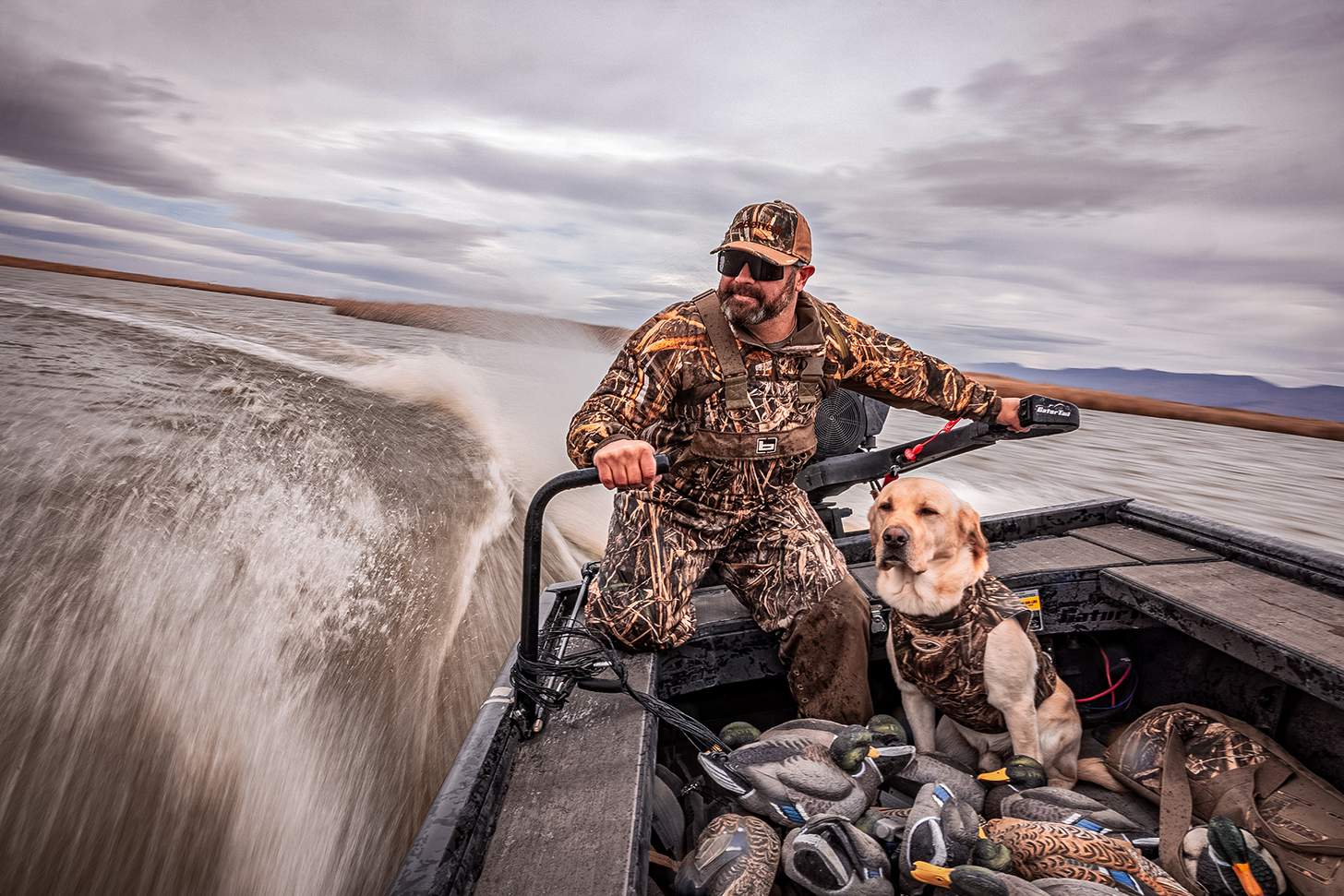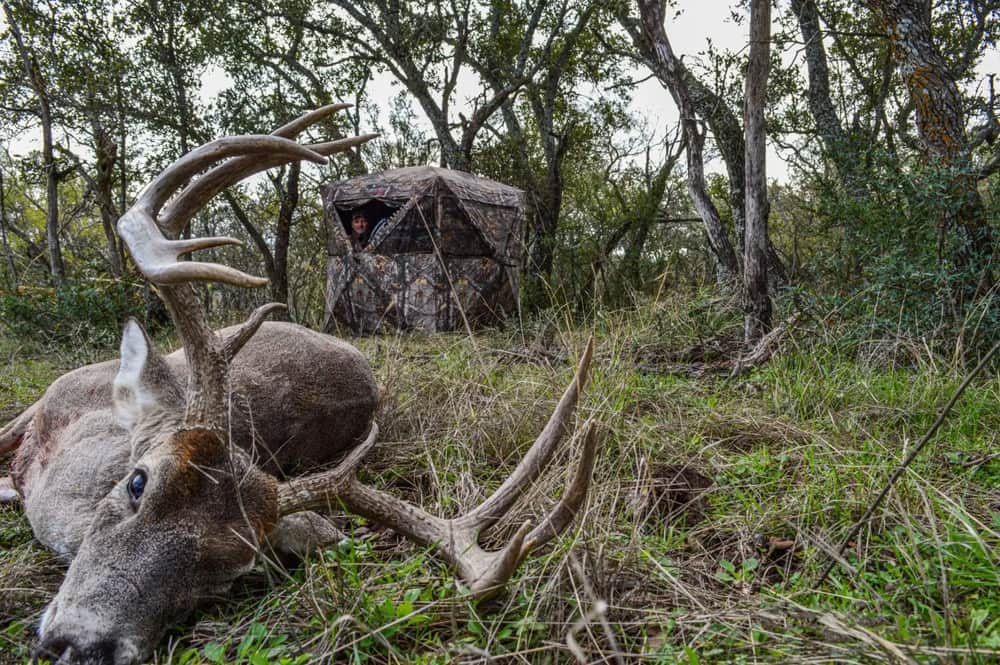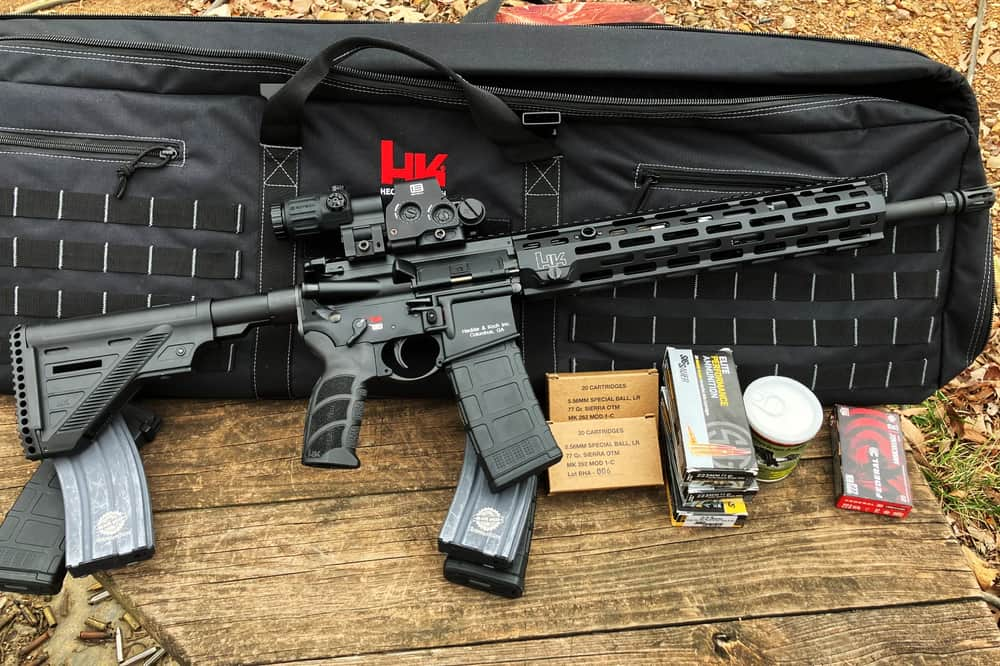If you’ve ever watched The Fowl Life and marveled at Chad Belding’s ability to call waterfowl to within literal swatting distance, then turn ducks into a delicacy afterward, you’re in luck. But don’t think his ability to call, kill and cook ducks is all Chad has going for him.
From his popular TV program to his TFL Productions company to Banded, one of the most successful gear and clothing companies in the waterfowl space, to podcasts and social media entities, the charismatic hunter/businessman has built an outdoor empire second to few. And he did it while living in the middle of the desert — not exactly what you would consider prime waterfowl habitat.
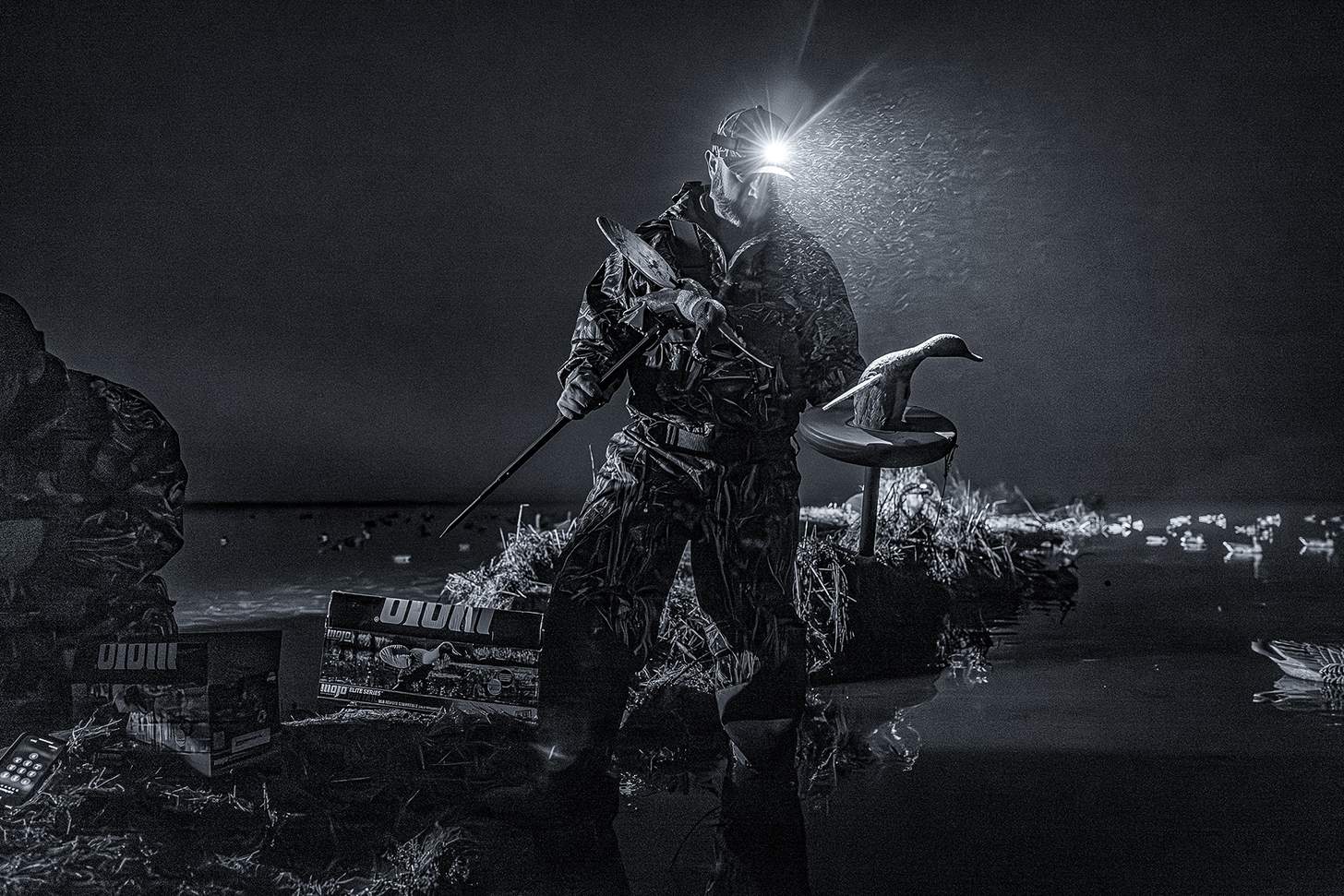
Chad Belding’s Formative Years
Unlike many serious waterfowlers, Chad didn’t grow up hunting ducks. Instead, his father introduced him to hunting by taking him to pursue game birds and big game in the Western United States. While Chad wanted to barge into mule deer habitat and roust out a buck, his dad showed him a better way.
“My dad was all about the scouting and the stalk and the binoculars,” Chad said in an exclusive interview with Hook & Barrel magazine. “I have ADD, so I’d just try to sit there in binoculars and I’d flip out.
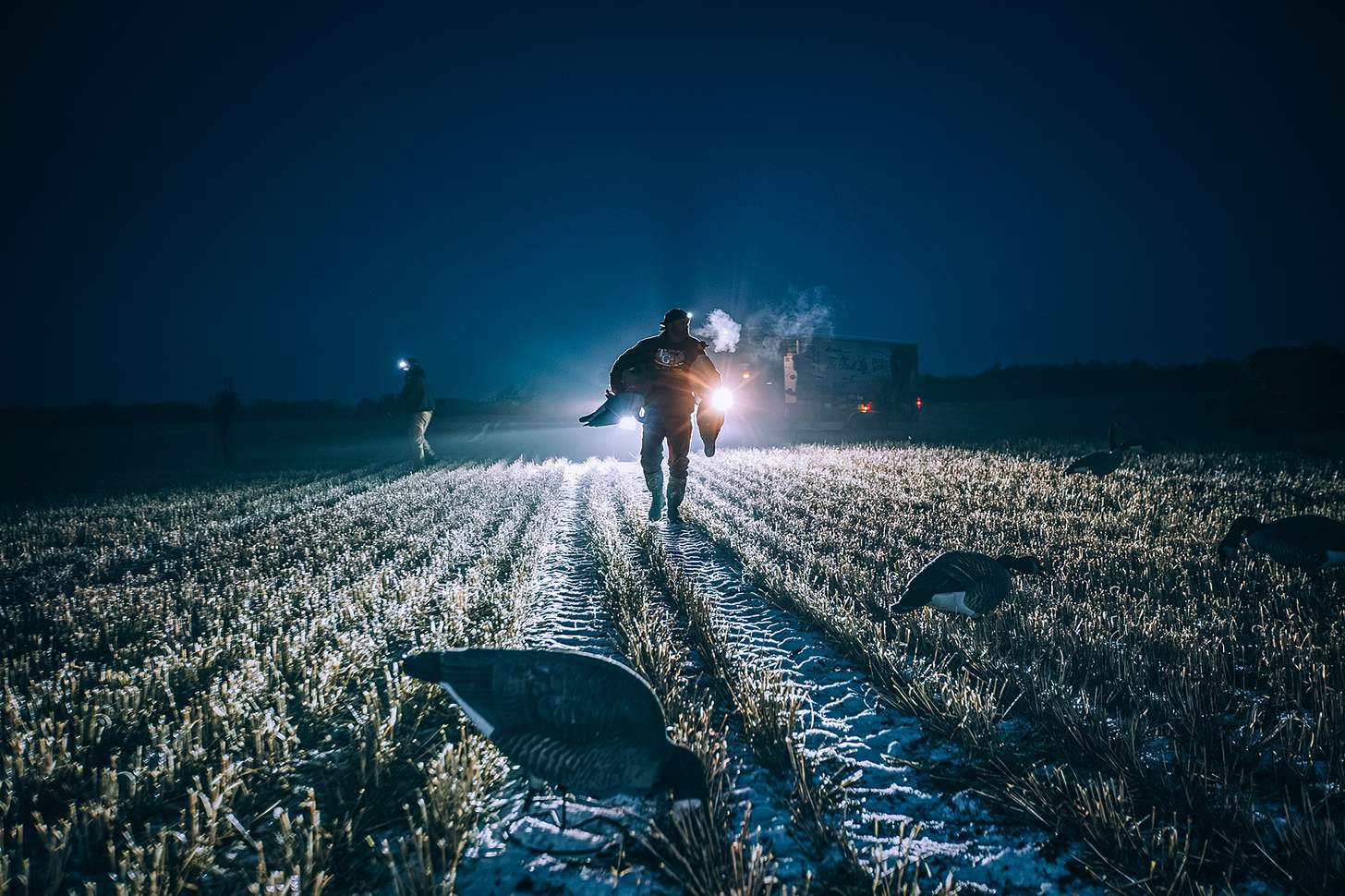
"I’m like, ‘Come on, we gotta get up and move.’ And my dad would be like, ‘Sit down and look for some horn tips, look for a tail wagging, look for something shiny lying down on a sunny day on that shady side of the mountain where these deer are in the brush.’
“So, I learned at an early age that if you let the animal hunt you up, you’re going to be way more successful than barging into that animal’s world and trying to hunt him up.”
Chad Belding eventually learned that being still and making all the right sounds was equally effective for hunting waterfowl. Soon, his focus was on chasing ducks and geese.
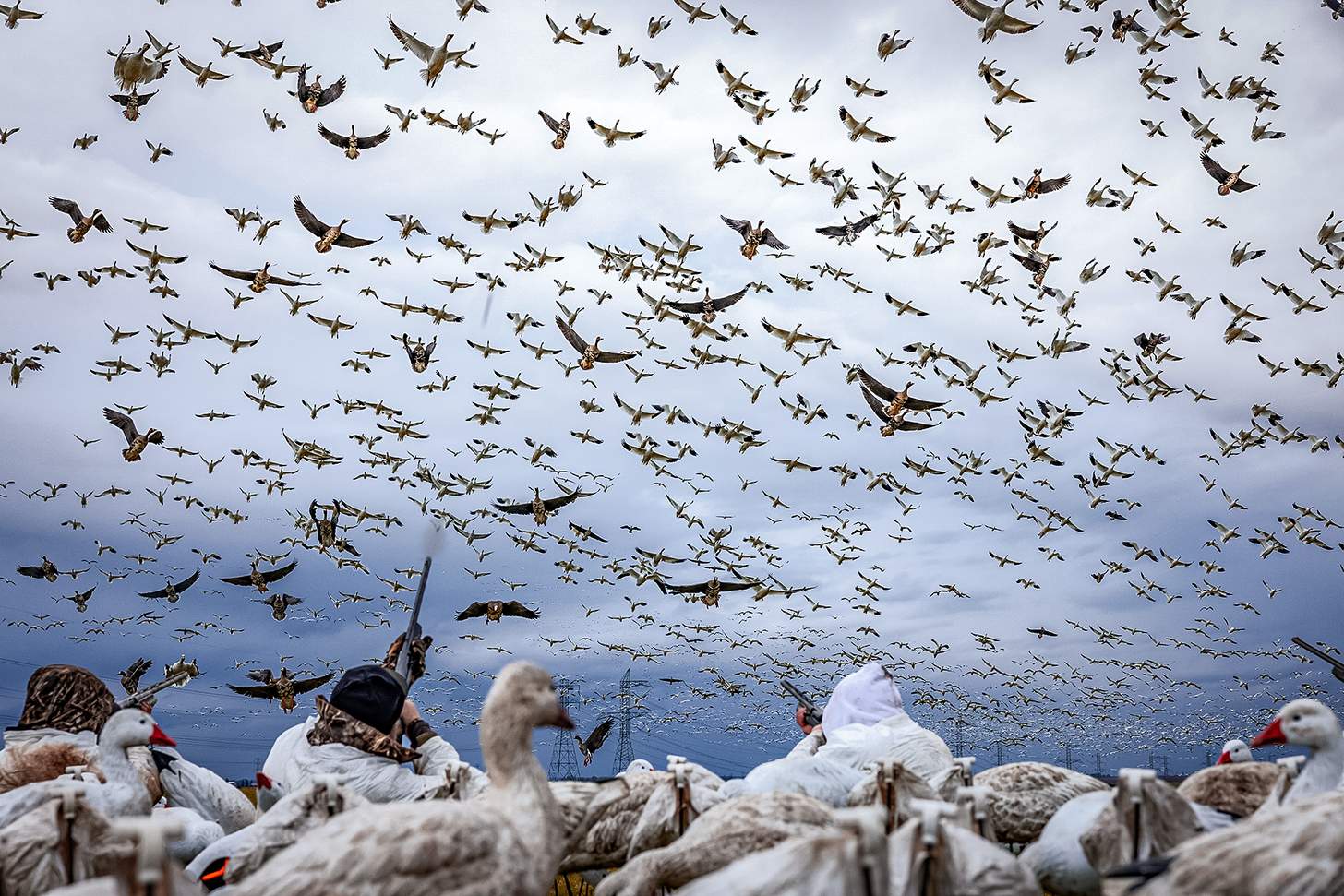
“I was a big-time baseball guy, and when I got out of college and wanted to keep my competitive edge, I was really into duck and goose calling,” he said. “So, I traveled the whole world competing in duck calling contests and goose calling contests.
"I soon realized in my calling career, I’d win some, but I’d get my ass kicked a bunch. But I was building a network that started to get pretty vast. I was starting to get invitations in the media world, people inviting me on the road to film their stories, to have my personality in there. That’s kind of how The Fowl Life started.”
Chad Belding and his Banded crew shot the first episode of The Fowl Life in Saskatchewan in 2008, and it aired in 2009 on the Sportsman Channel. What came next was somewhat of a surprise.
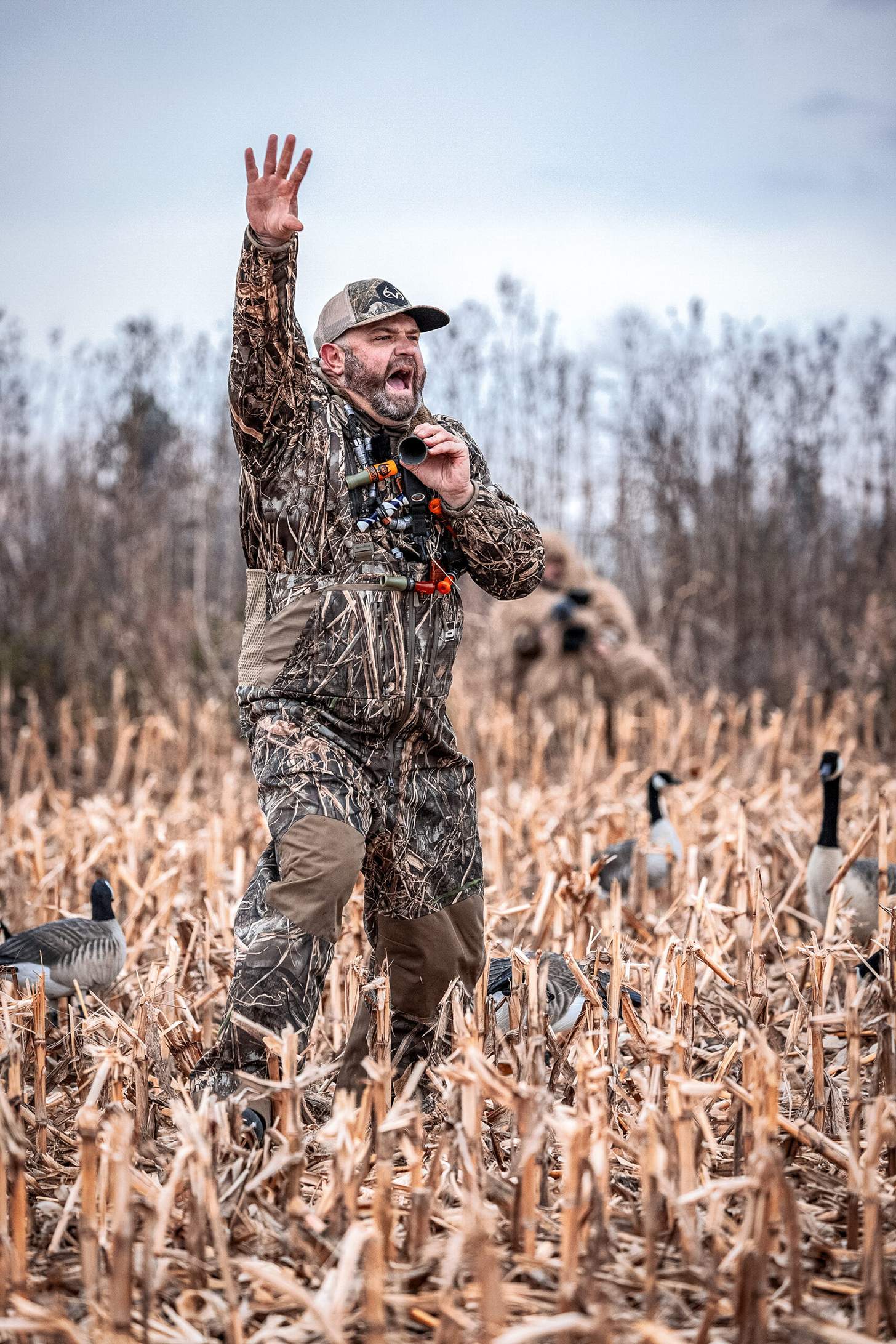
“When the first few episodes aired, people were writing in asking, ‘What calls are you blowing?’ ‘What shirt are you wearing?’ ‘What boat are you in?’ So, I said, ‘Man, the money is in manufacturing.’
"That’s when I launched the Banded brand which started with creating t-shirts. As an MMA fan, I got to thinking that we should be making TAPOUT-style t-shirts for hunters. Ultimately, it paid off, and today the Banded brand is truly a beast.”
Chad Belding The Duck Whisperer
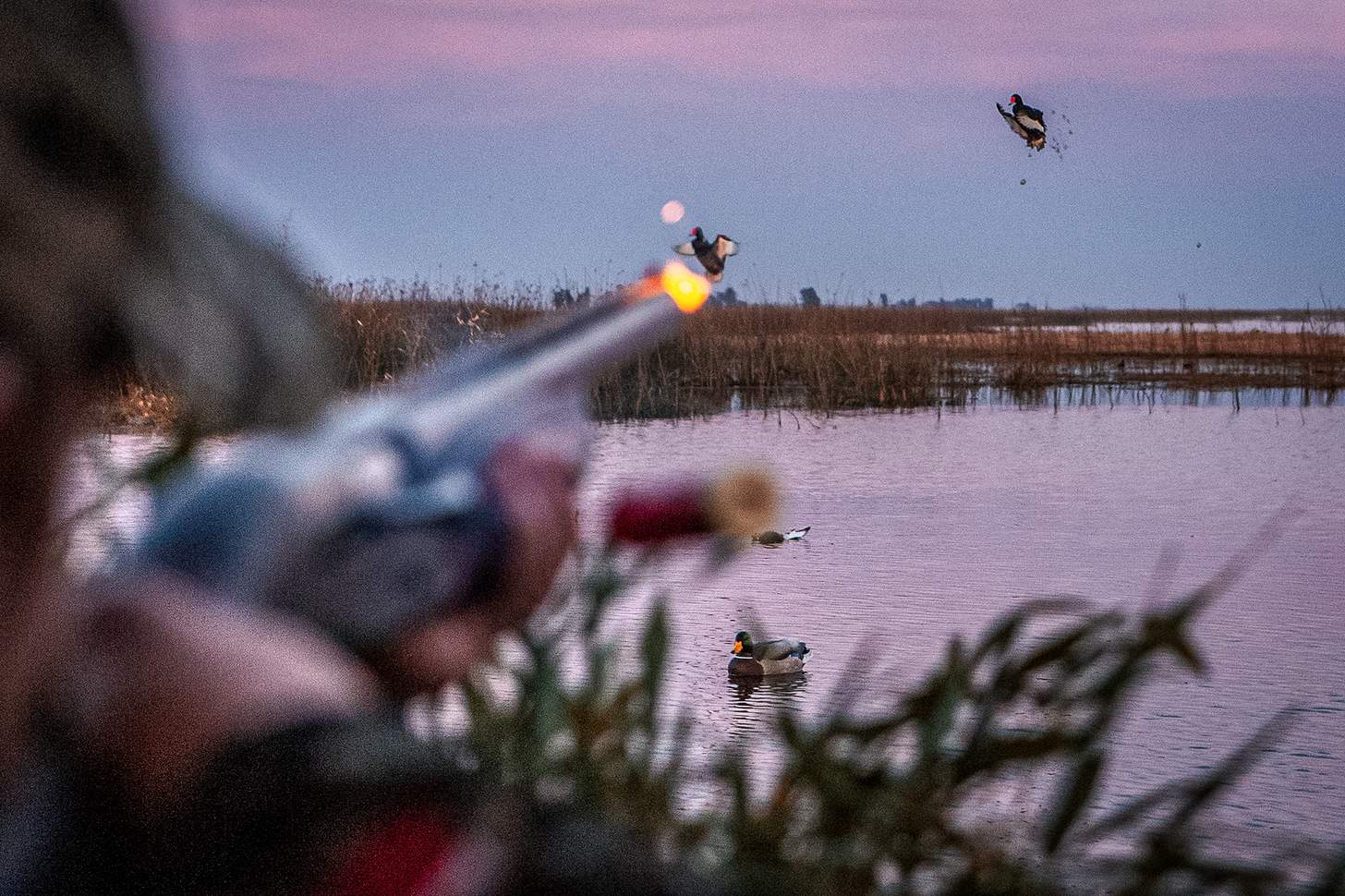
Chad’s ability to successfully call ducks and geese didn’t come overnight. The successful endeavor actually started with something he heard while in college, which led to another business success.
“When I was playing college baseball, I had a professor tell me, ‘You baseball players are all out there talking your jargon.’ I was like, ‘What?’” he said. “I learned that jargon was the specialized vocabulary among a group of people, and basketball players talk differently than baseball or football players. A surgeon talks differently than a pilot talking to air traffic control.”
Chad loved how the idea of jargon carried over to waterfowl hunting. Along the way, he has identified three levels of jargon that duck and goose hunters need to know to be successful.
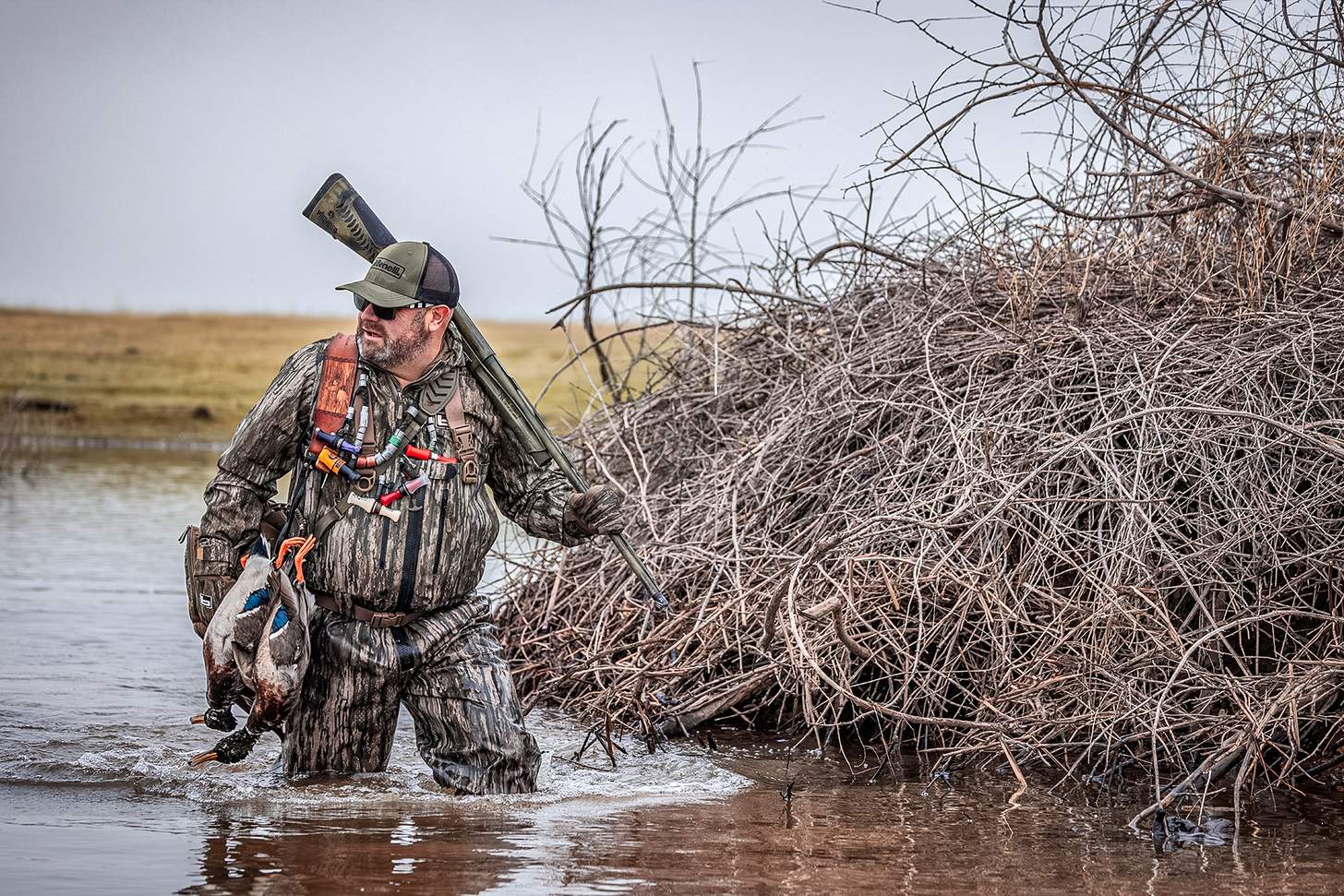
“The first one is we have a vocabulary that we use in the duck blind,” he said. “I’ll say, ‘Hey guys, get down, cover up, pull the jerk string, pull the blind.’ Those are things that only people who are other duck hunters will understand. You wouldn’t say that in deer hunting or sheep hunting.”
Chad’s second level of waterfowl jargon is the communication he has with his dog—his black Lab Axl.
“It’s another vocabulary I wouldn’t say to you,” he said. “Watch, steady, mark. It’s an entire vocabulary I only use with my dog.”
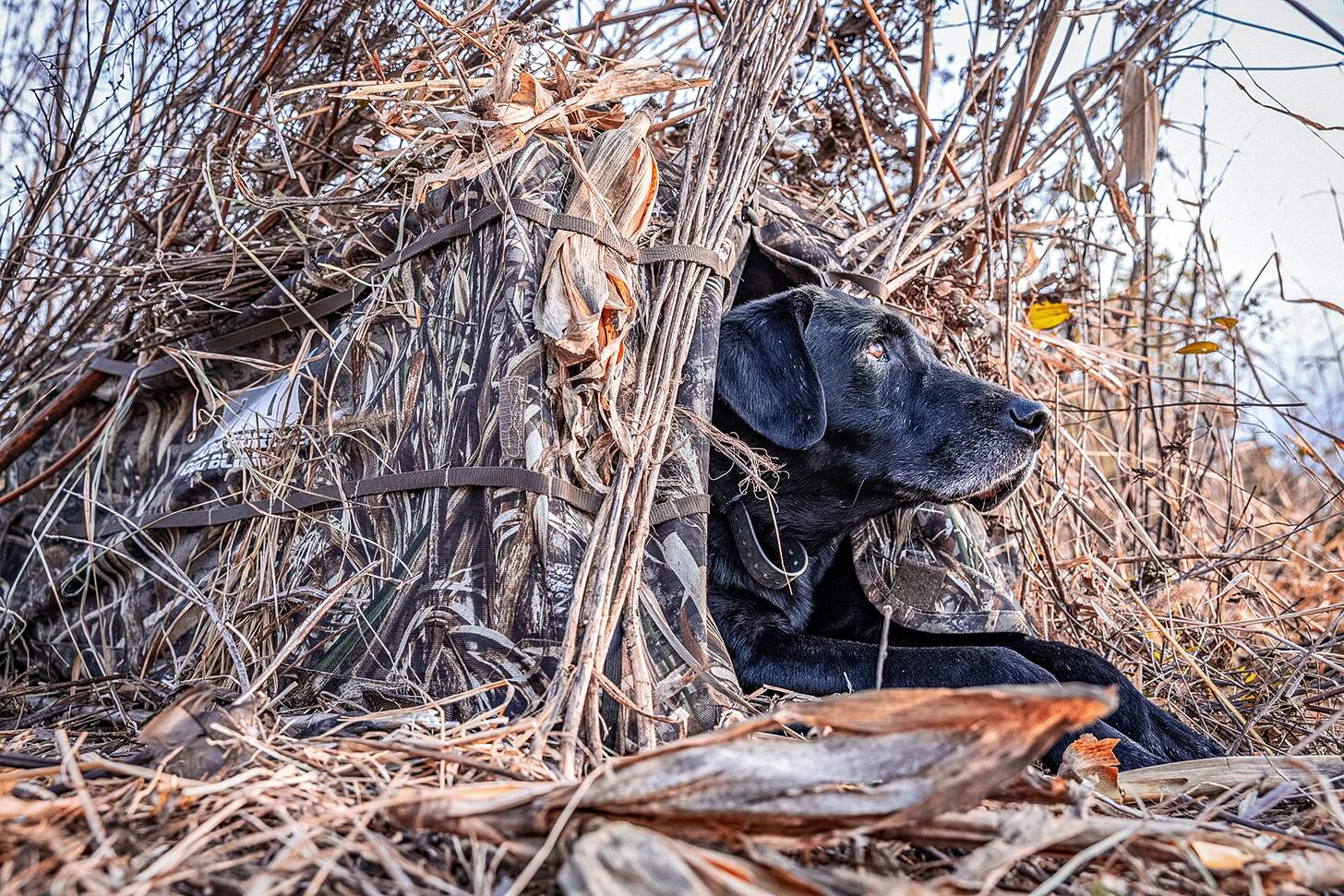
Lastly is the jargon he uses when communicating with wild animals, in this case, waterfowl. That is another entirely different vocabulary.
“I’m enticing them with my call when I’m hitting all these notes,” he said. “I’m actually saying things to get them to level up and to trust or to work our decoy spread and come in.
“Those three levels of jargon led me to launch a company called Jargon Game Calls, where we build duck and goose calls in Searcy, Arkansas. It’s just part of my passion for the vocabulary, for how these animals communicate.”
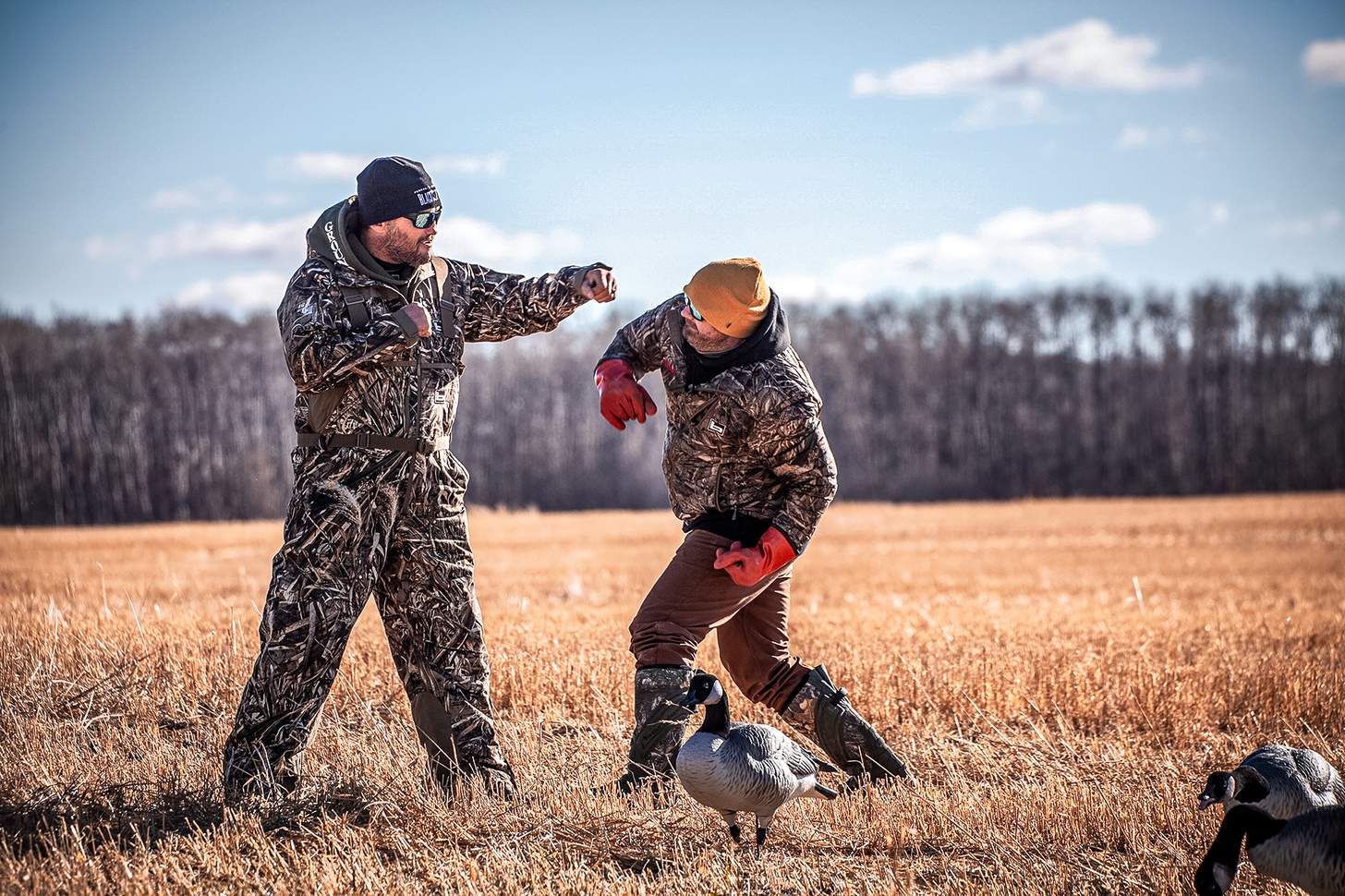
We’re Just Men Living in a Duck’s World
Through his involvement in his various waterfowl-centric endeavors, Chad has come to a crucial realization. And it is likely true for others who eat, sleep and breathe waterfowl hunting. This all came about in an Irish bar when he saw a picture of the World Cup trophy, which looked to him like a mallard duck’s foot wrapped around the globe.
“I’m looking at that like that mallard duck is holding up my world, so I came up with this thing of ‘We merely exist in a duck’s world,’” he said. “I have a daughter that means the world to me, and I have friends and I have family, but I think about a mallard duck every single day, multiple times a day.
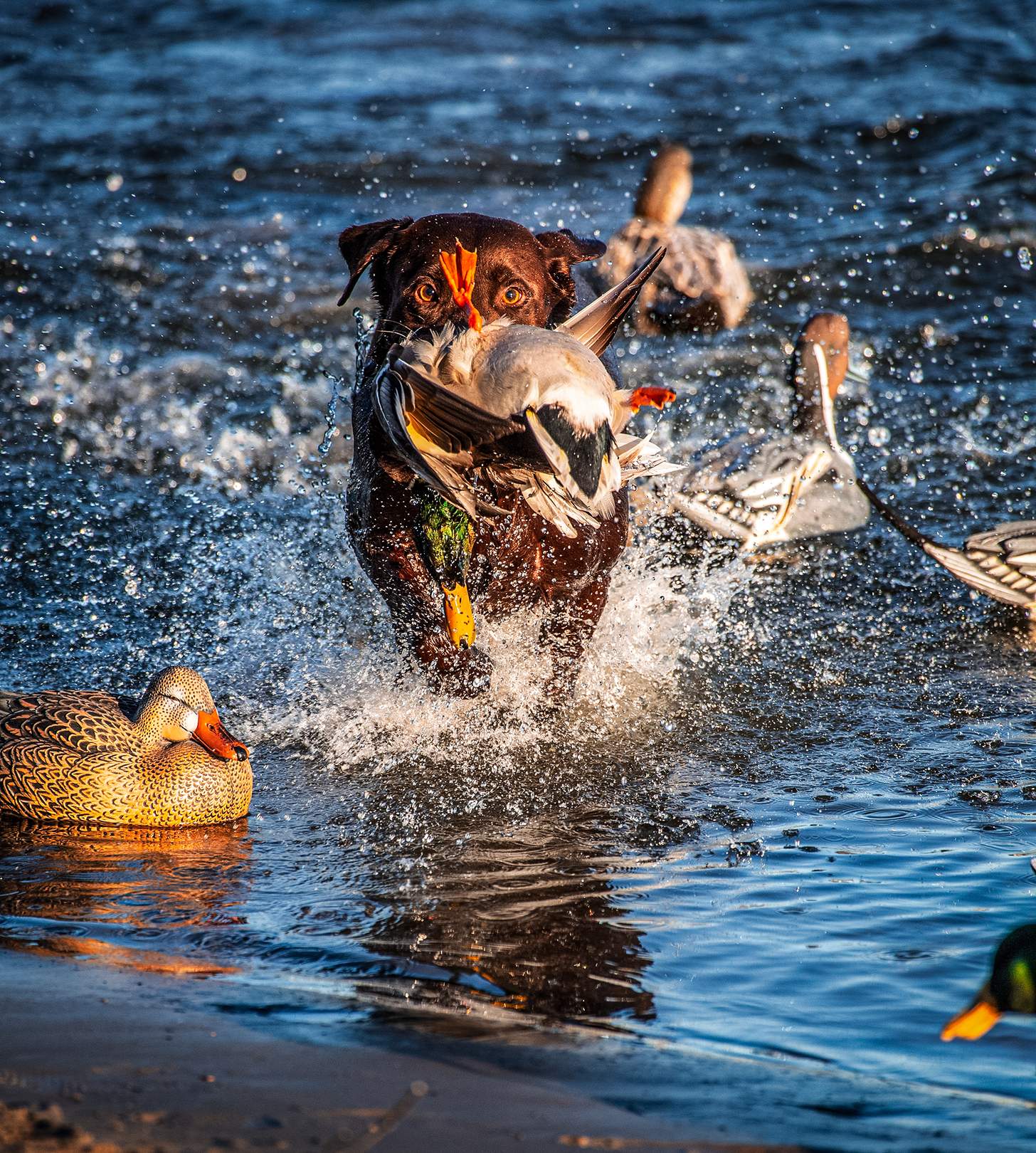
"When I saw that trophy, I realized that I merely exist in a duck’s world. It’s like they control every move I make.”
Chad likened it to a puppet master, daily pulling his strings. Only in his case, the puppet master has a green head and an orange bill.
“I could be having the best day of my life or the worst day of my life and see two mallard ducks pitch into a creek, and my day is made,” he said. “When they come up and their feet go down and they just start losing altitude, my day is made. They rule my world. That’s one reason the industry is so special to me, and we’re honored to be doing what we’re doing.
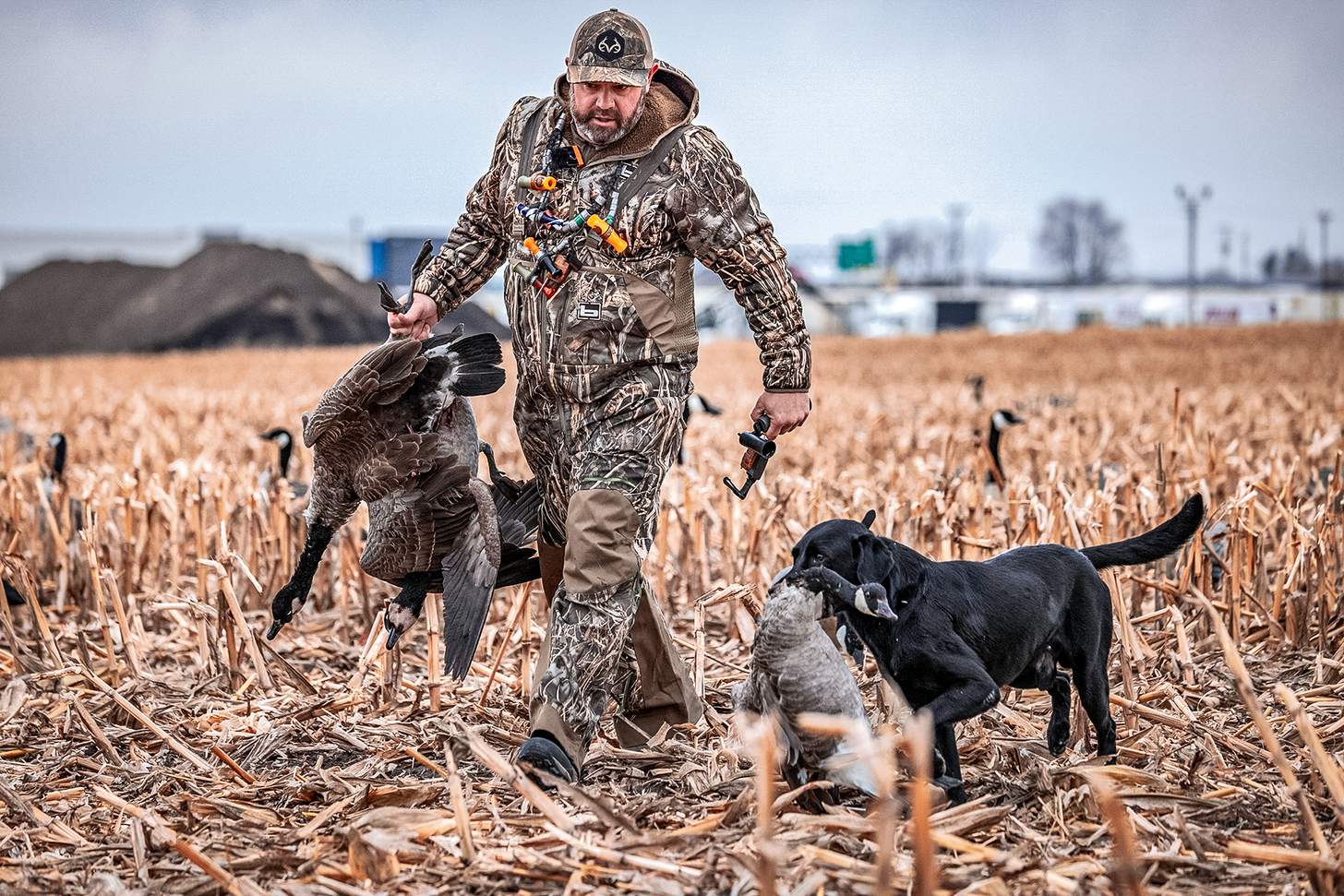
If that sounds hardcore, maybe even a little crazy, well, you might be right. While Chad lives his life to the fullest, just a brief conversation with him will soon convince you that he is, indeed, living in a duck’s world. And trust me, that’s a good thing for the ducks.
“You just never know how long you’re going to have this resource, so you cannot take it for granted,” he said. “It could be here today, gone tomorrow. We have to protect it.
"If you’re not involved and you’re not willing to have some sweat equity and elbow grease in a conservation group, whether you’re on the board of a DU dinner or helping raise funds, hunters have to work for this. Hunters are the ultimate conservationists.”
Greenheads in the Timber
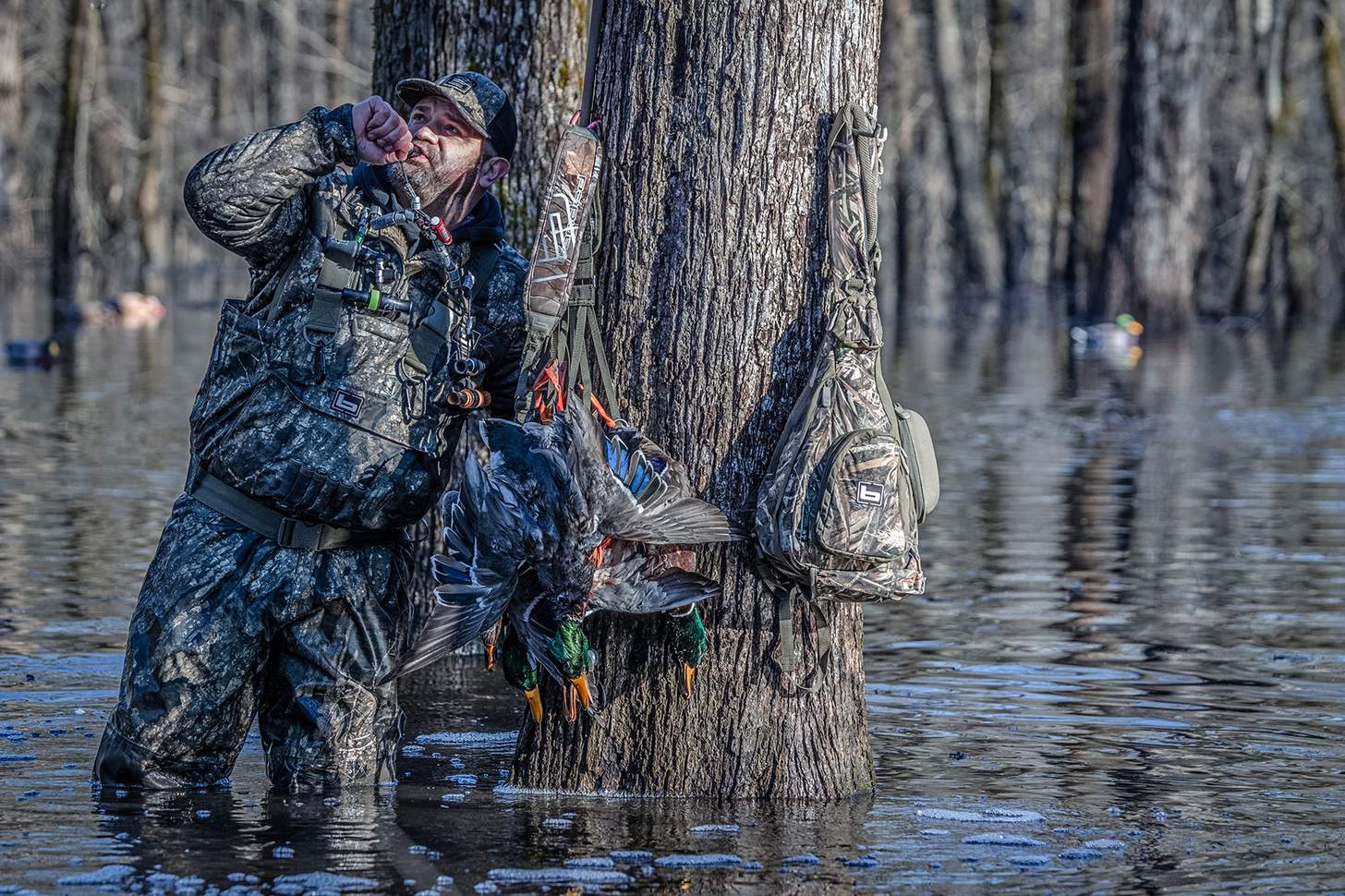
In his interesting line of work, Chad has been fortunate enough to hunt ducks and geese worldwide. Consequently, answering a question about his favorite place to hunt and his preferred species to hunt there isn’t a simple task.
“That’s like the most difficult question in the world,” Chad said. “I have always loved the flooded timber of Arkansas because you can’t get ducks to work like that anywhere else in the world.
"It’s such a hard question because being on the Snake River in Idaho is magic. Being on the Missouri River outside of Bismarck is magic. Being on the Yellowstone in Billings, Montana, is magic.”
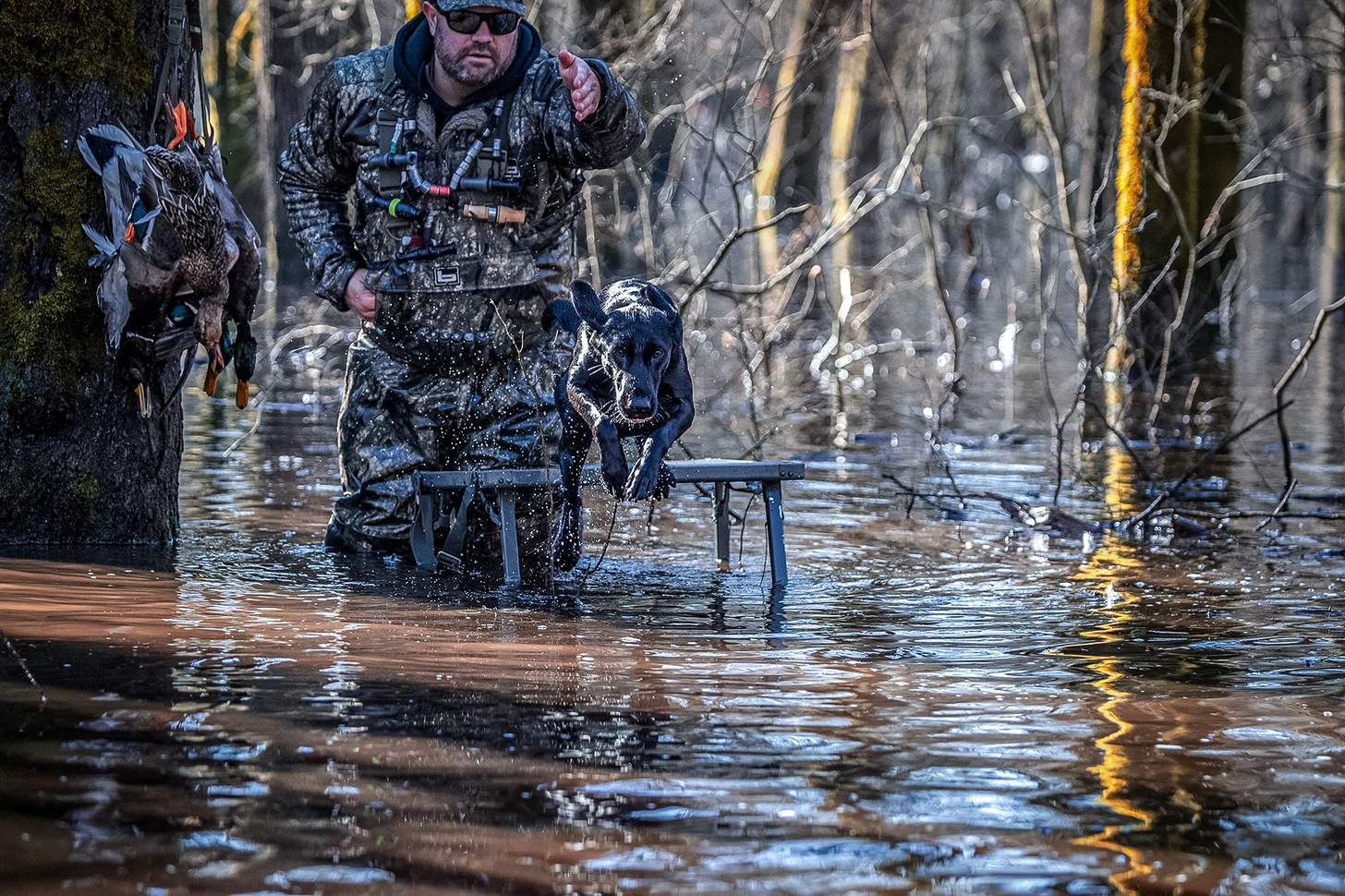
Pinned down, though, Chad had to admit that he did have an all-time favorite place and species to hunt. And boy is he ever a fan!
“If I had one last time to hunt, I’m going to be up against the tree kicking water at Prairie Wings south of Stuttgart,” he said. “It’s just a magical place: the lodge, the camp, the way that you enter the camp, the way that you enter the woods. It’s just mind-blowing.”
Chad said at Prairie Wing, you’ll find yourself from a half mile to two miles deep in the woods on private property in a combination of beauty and solitude. You revel in your surroundings, knowing the best is yet to come.
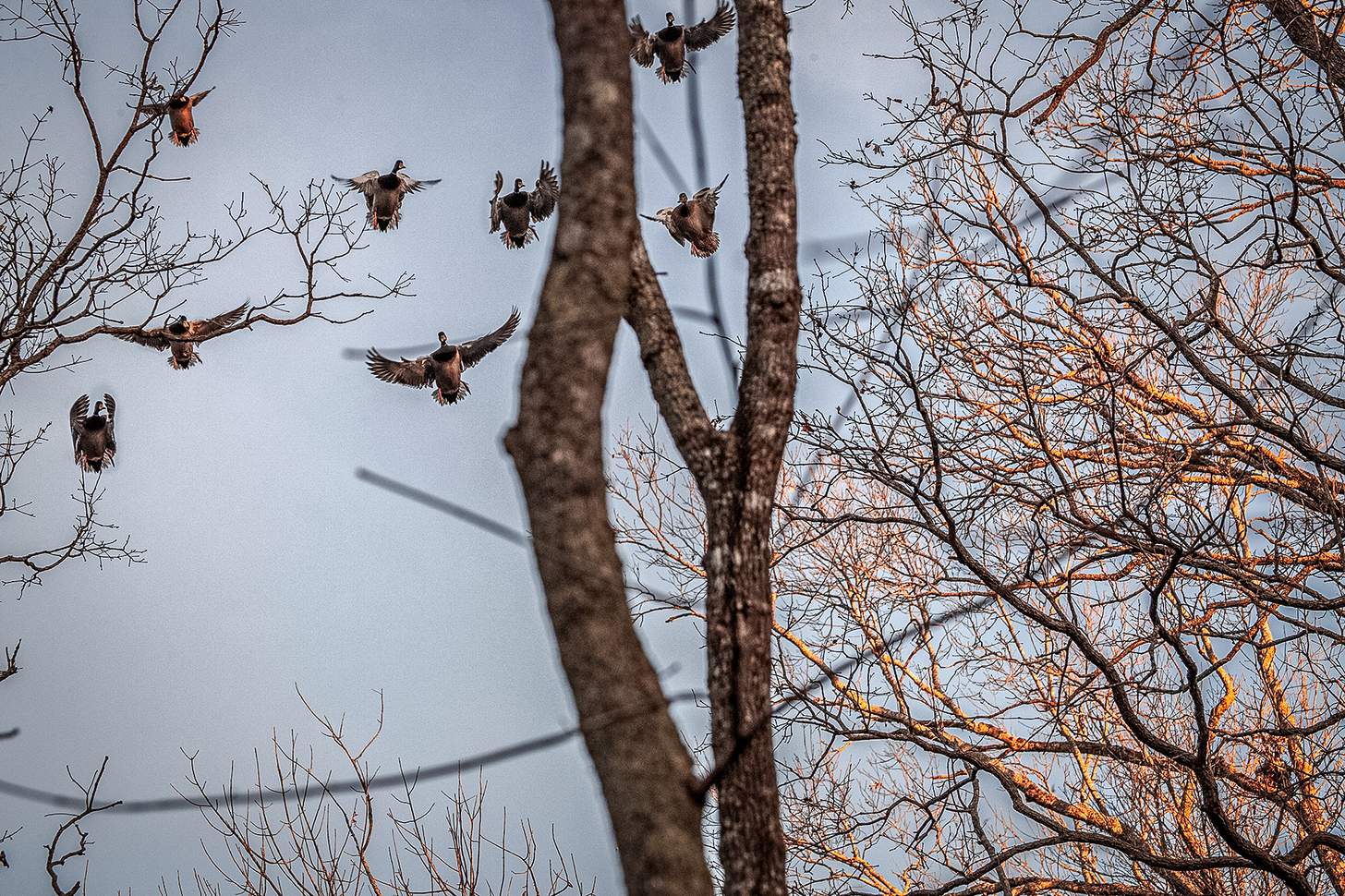
“What happens that morning from 7 to 10 is some of the most magical stuff that you could ever see with thousands of ducks over the canopy, you’re shaking the water, kicking the water, your dog is up on the stand,” he said. “Leaving the rice, they sleep in the rice at night and gorge themselves, and what they do is they descend into that flooded timber in the morning.”
To Chad, one of the most exciting things about hunting that Arkansas timber is the fact that it’s a completely auditory experience. The ducks can’t see the hunters, and the hunters can’t see the ducks.
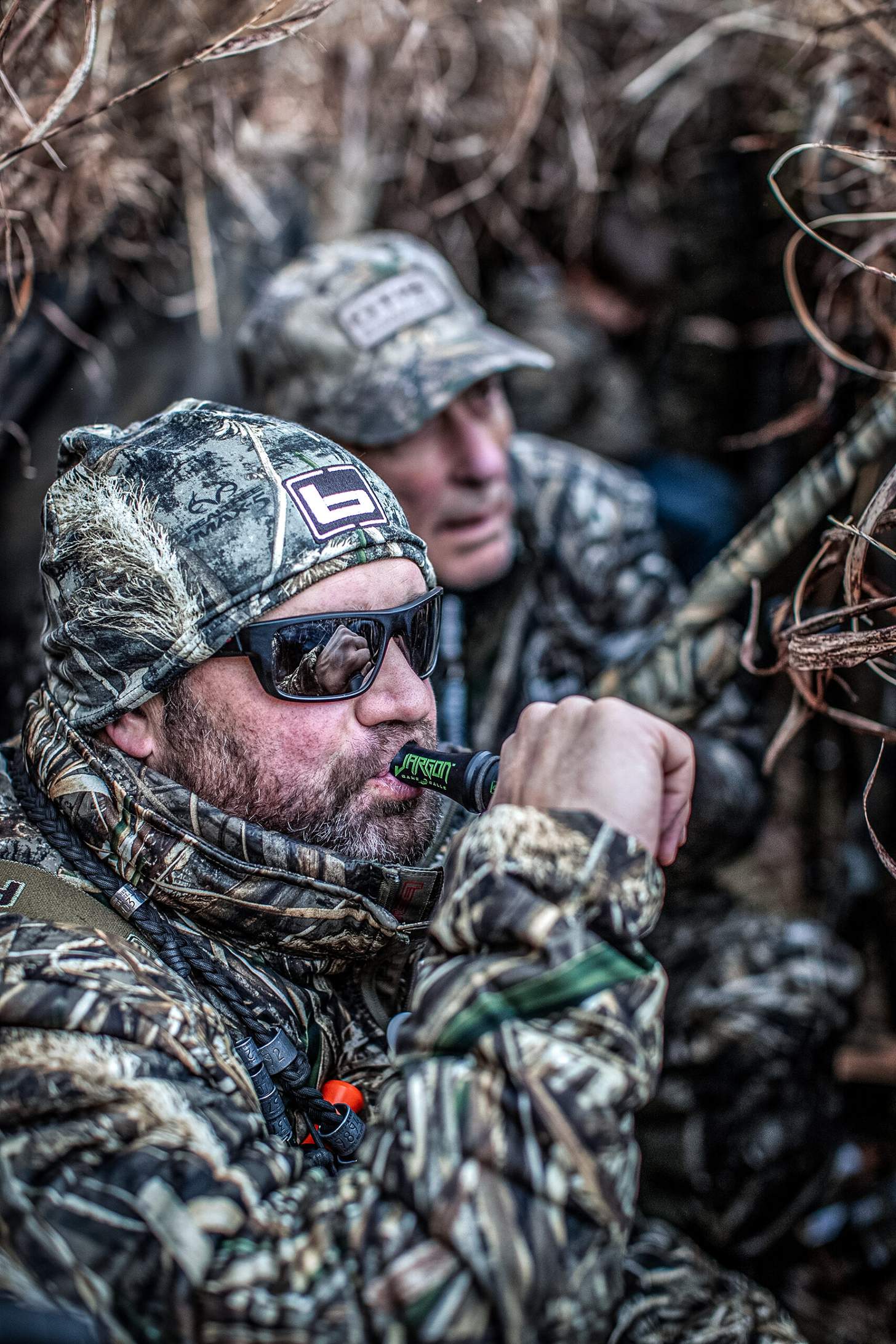
“They’re looking down at just a giant canopy of trees when they’re over the flooded timber,” he said. “That’s why the hail call became so proficient.
"You’re trying to break down the ducks to get them to set their wings and start descending. And, when five do it, it turns into 40, and the 40 turns into 200 in a matter of seconds because they just start coming.”
Respectful (and a Tad Crazy)
With today’s immediate gratification society and YouTube “influencers” instant stardom, it’s easy to see a lot of ducks killed in a short amount of time. Chad, who isn’t all about the kill, believes ducks and geese deserve more respect than that.
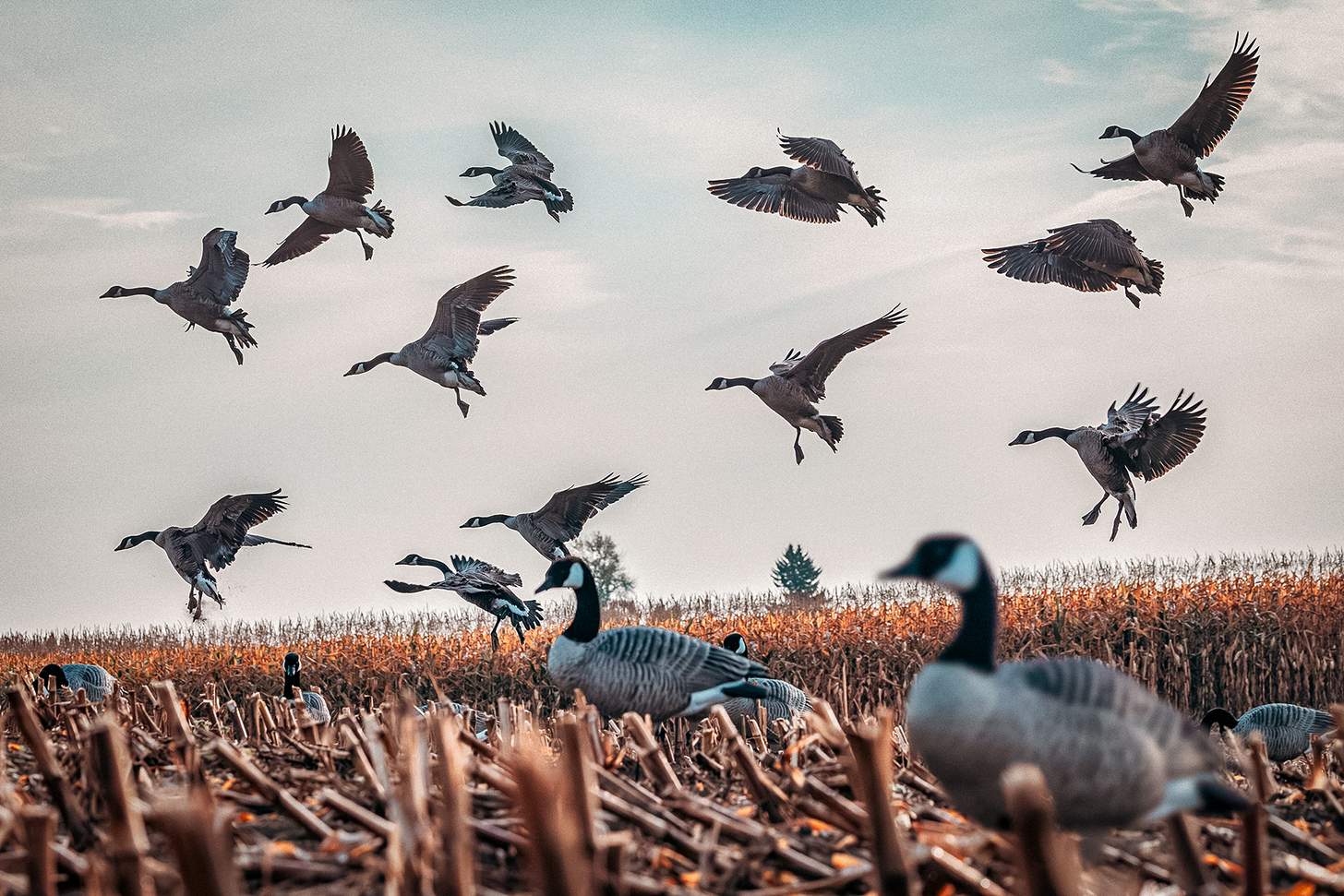
“We know that we’re unapologetic when we kill an animal, but we know where to pay our gratitude for that experience and why it’s happening and why we’re doing it, and I want to be responsible like that,” he said. “I want to teach people that hunting is bigger than your trigger pull.
"Hunting is bigger than you thinking you’re the best duck caller in the world because you have a YouTube channel and you have 50 followers on it. It’s bigger than that.
"This industry and this lifestyle are so important to me that it’s irritating to see how easy it is for people to think they’re the best at it when nobody’s the best at it.”
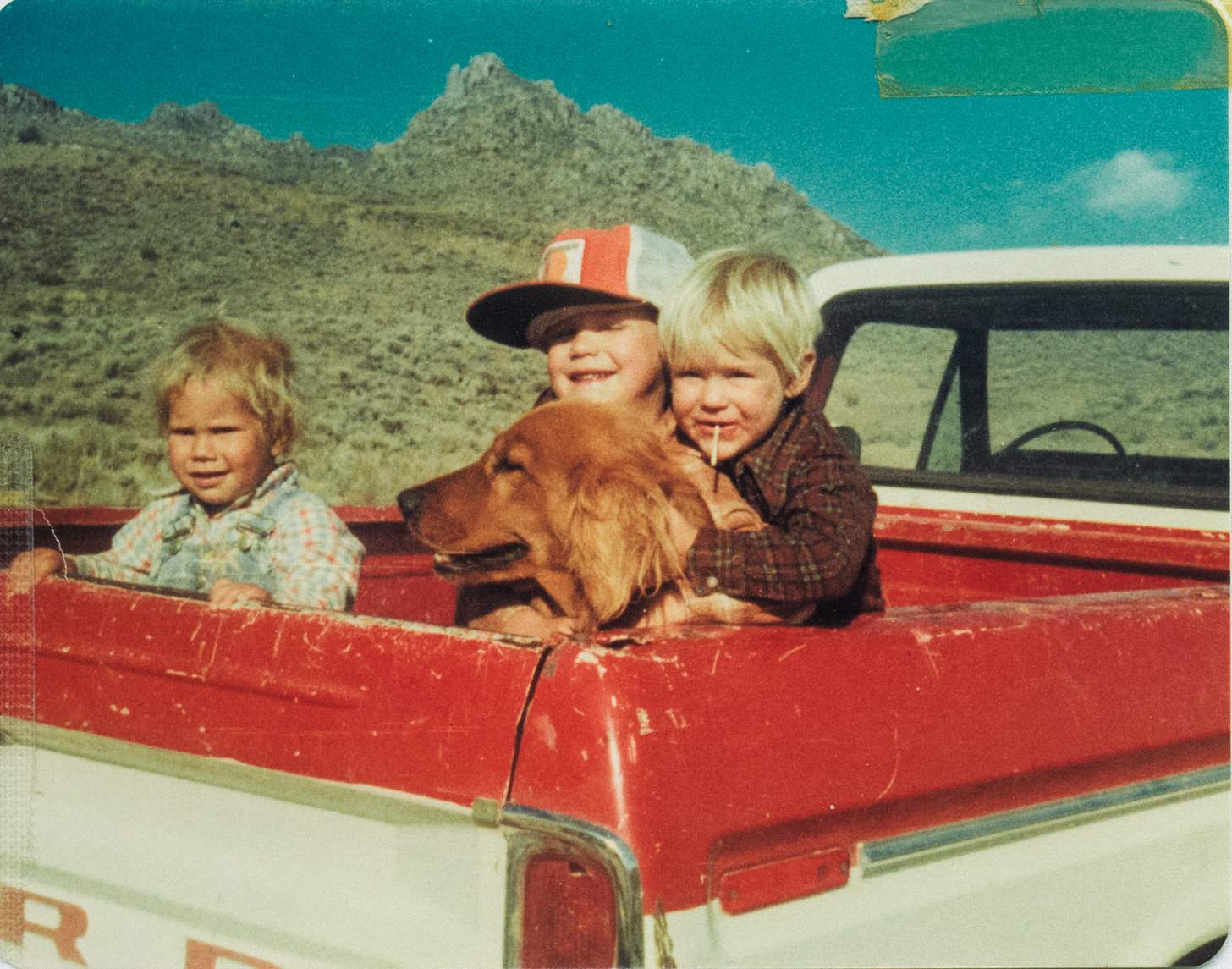
In an interesting analogy, Chad explained how planning a duck hunt and executing that plan is like creating a work of art. In fact, he became passionate when speaking about it.
“You’re throwing your paints at this blank canvas every night,” he said. “I tell people to stare at that blank canvas. Create your hunt now. Start throwing your paint at it.
"Create a masterpiece of the hunt. Did you scout? Where are they coming from? Where’s the roost? Where’s the wind going to be? What’s the sky? What’s the temperature? What’s the forecast? Where are you going to hide? Is it a pea field? Is it a corn field? Is it a slough? Is it an oxbow? Is it a river? How are you going to hide now?”
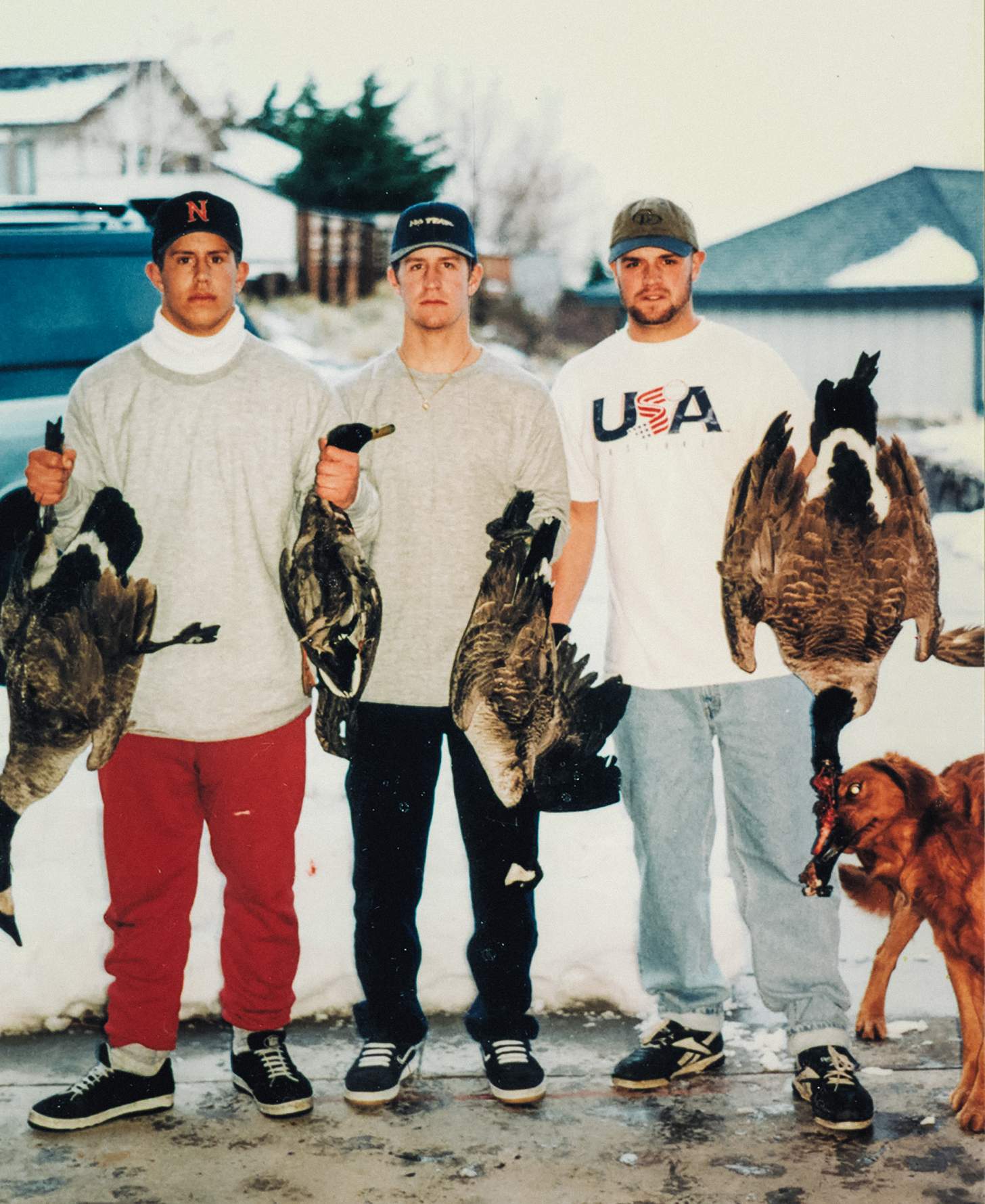
Chad admits that waterfowl hunting has quite a financial barrier to entry. It’s not cheap, and that’s one reason it’s not for everyone.
“It’s so difficult and intimidating to be a duck hunter, from the financial aspect to being able to identify ducks on the wing, knowing all the rules federally and statewide, the gray area and all those laws,” he said.
“That’s why there are 2 million—at the most—duck hunters in the world. There are 4.7 million turkey hunters. There are 14 million deer hunters in the country. There are less than 2 million duck hunters because it’s cold, it’s wet, it’s difficult.
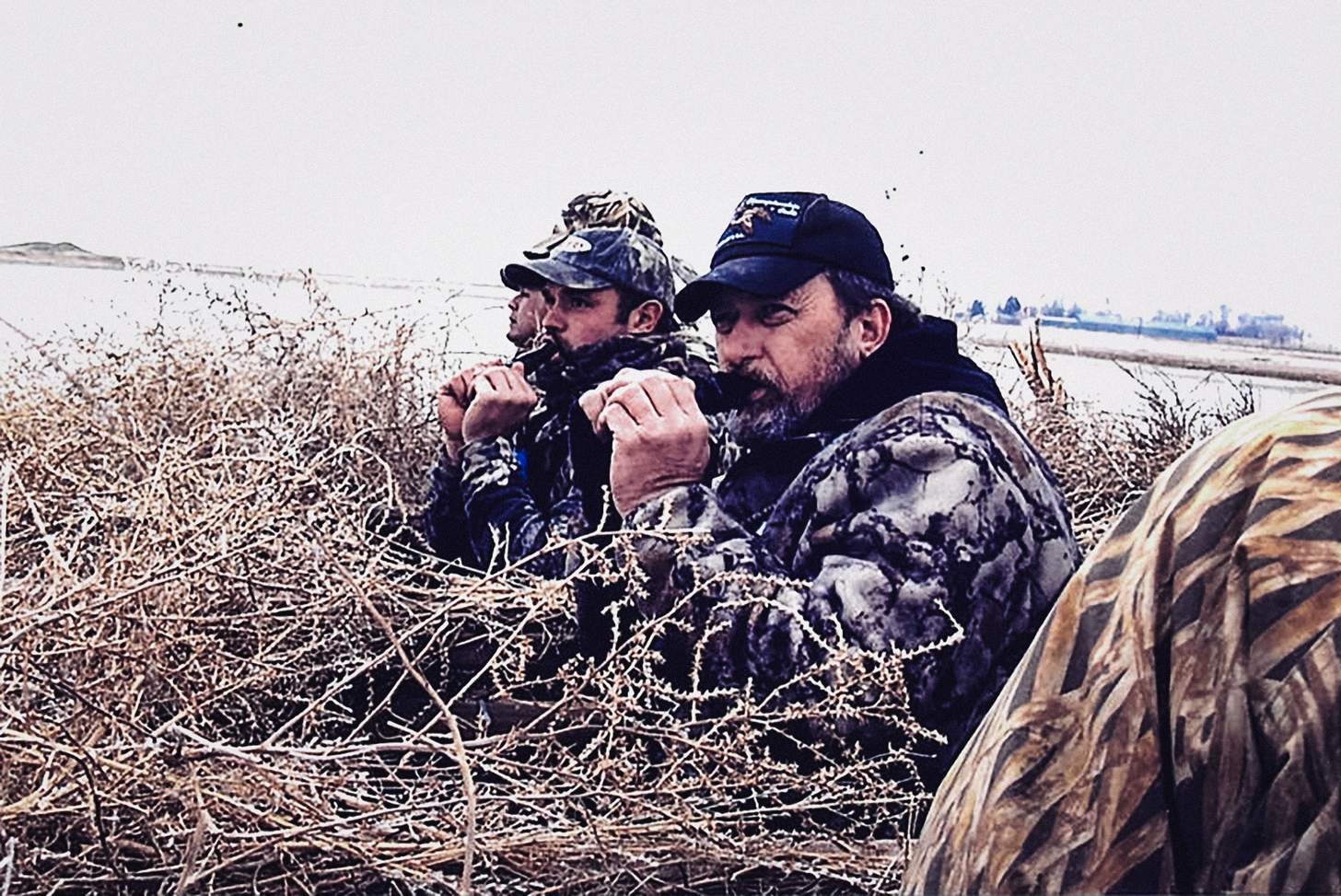
“Then you have to buy decoys, a dog, a 4-wheeler and a boat... It’s a different mindset, the mindset of a duck hunter — we’re crazy. You’re never going to find a more passionate group that is going to be nonstop like diehard waterfowl chasers.”
Facing The Future Of Waterfowl Hunting
In our two-hour conversation, it became clear that Chad is more passionate about ducks and duck hunting than anyone I’ve ever met. He also has a strong desire to pass on that love for waterfowling. But to do so, there have to be ducks and geese to hunt.
“We’re so lucky in this country to be able to hunt in the first place, so we have to protect it,” he said. “There’s so much that hunters are doing every day that America doesn’t know about.
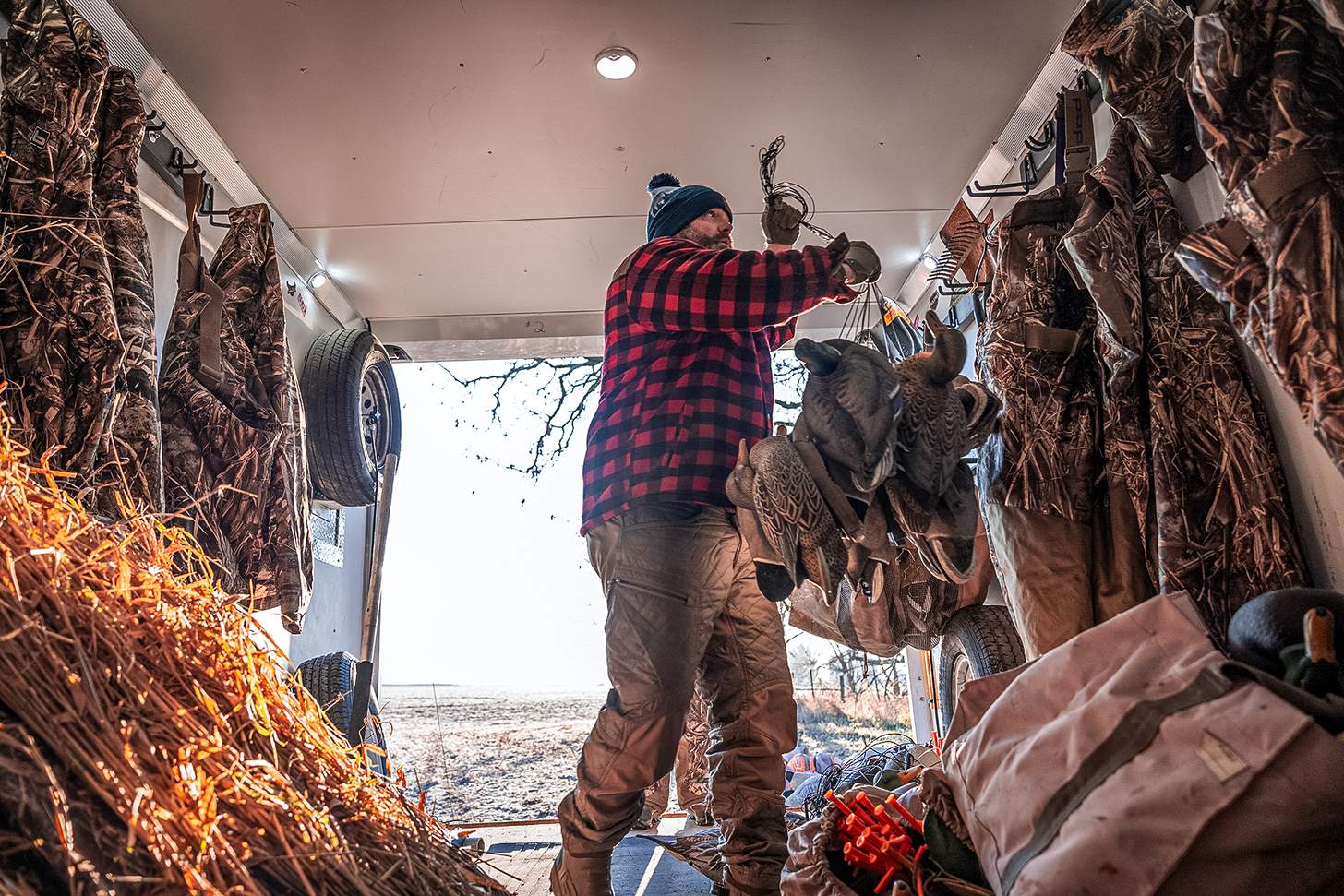
"The reason they get to see these animal populations thrive like they are, whether it’s the turkeys or the elk or the mule deer, it’s because hunters are continuously fighting and giving back.”
Ultimately, Chad wants all hunters to stop and consider how hunting is much more than killing. And that a good morning afield doesn’t necessarily have to result in a pile of dead greenheads.
“If I see a dead duck on the road back in March or April during the breeding season, I get tears in my eyes,” he said. “The hunter doesn’t get out and laugh at that duck and be like, ‘Ha, you flew into a car!’ We’re not that guy.
"We don’t want that animal to suffer. We don’t want that animal to die that death. We want that death to be majestic. We’re living in their world.”
Calling Them In Close
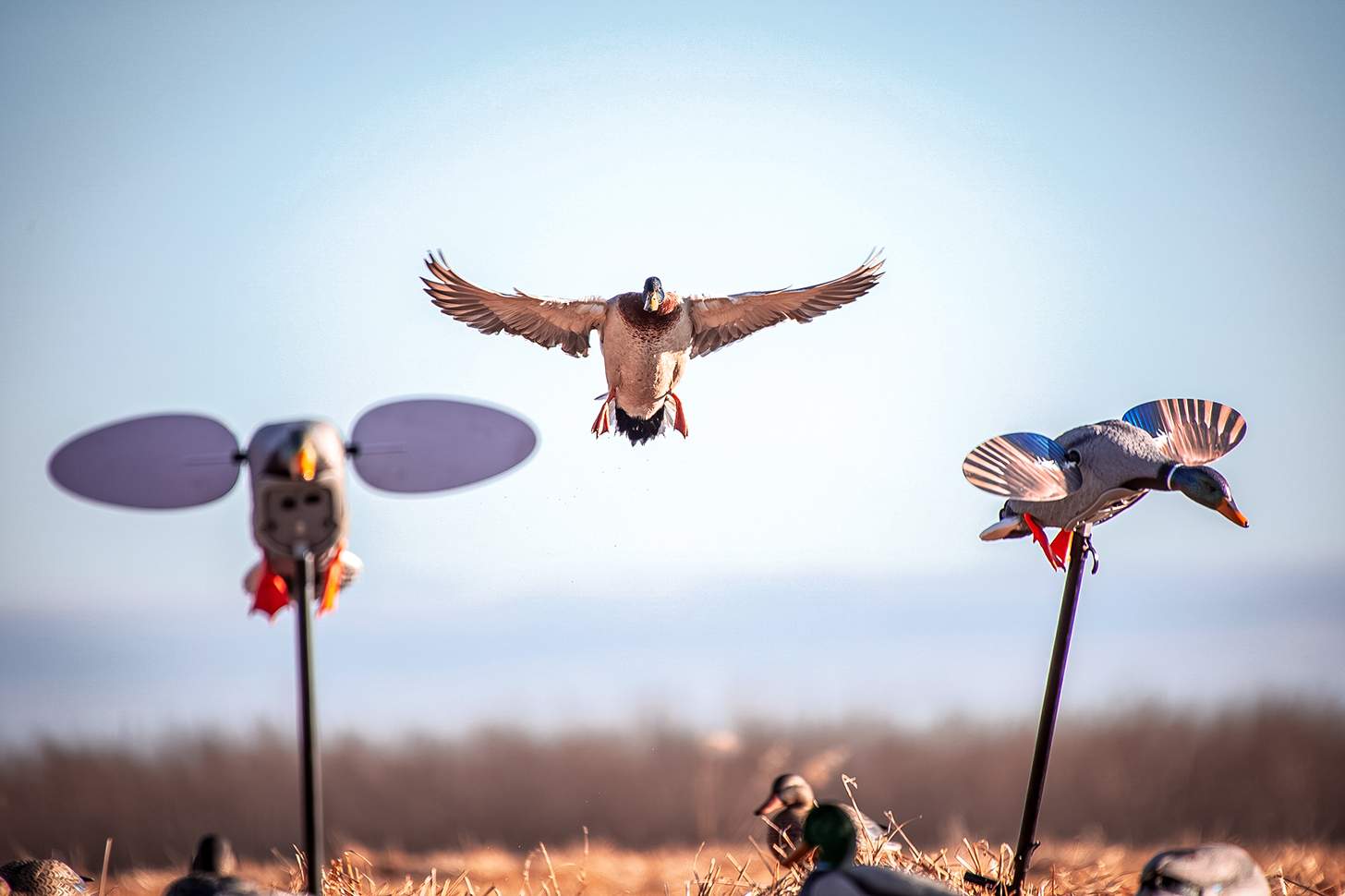
For those who aren’t aware, Chad has a reputation for not calling the shot at the right time because he’s so in awe of the birds coming into a decoy spread.
“I want them at 5 feet instead of 5 yards,” he said, “and when people see that, at first they’re kind of turned off. They want to shoot; they’re trigger guys.
“When I started, I wanted them to be intimate with me right in my lap, and that’s how I still am. And if the geese aren’t 10 yards or closer, I’m not calling the shot. It’s amazing. You can see people get frustrated. But if you’re just going to watch that goose tumble out of the air at 40 yards, go to the sporting clays range.”
Chad Belding’s Mentors & Friends
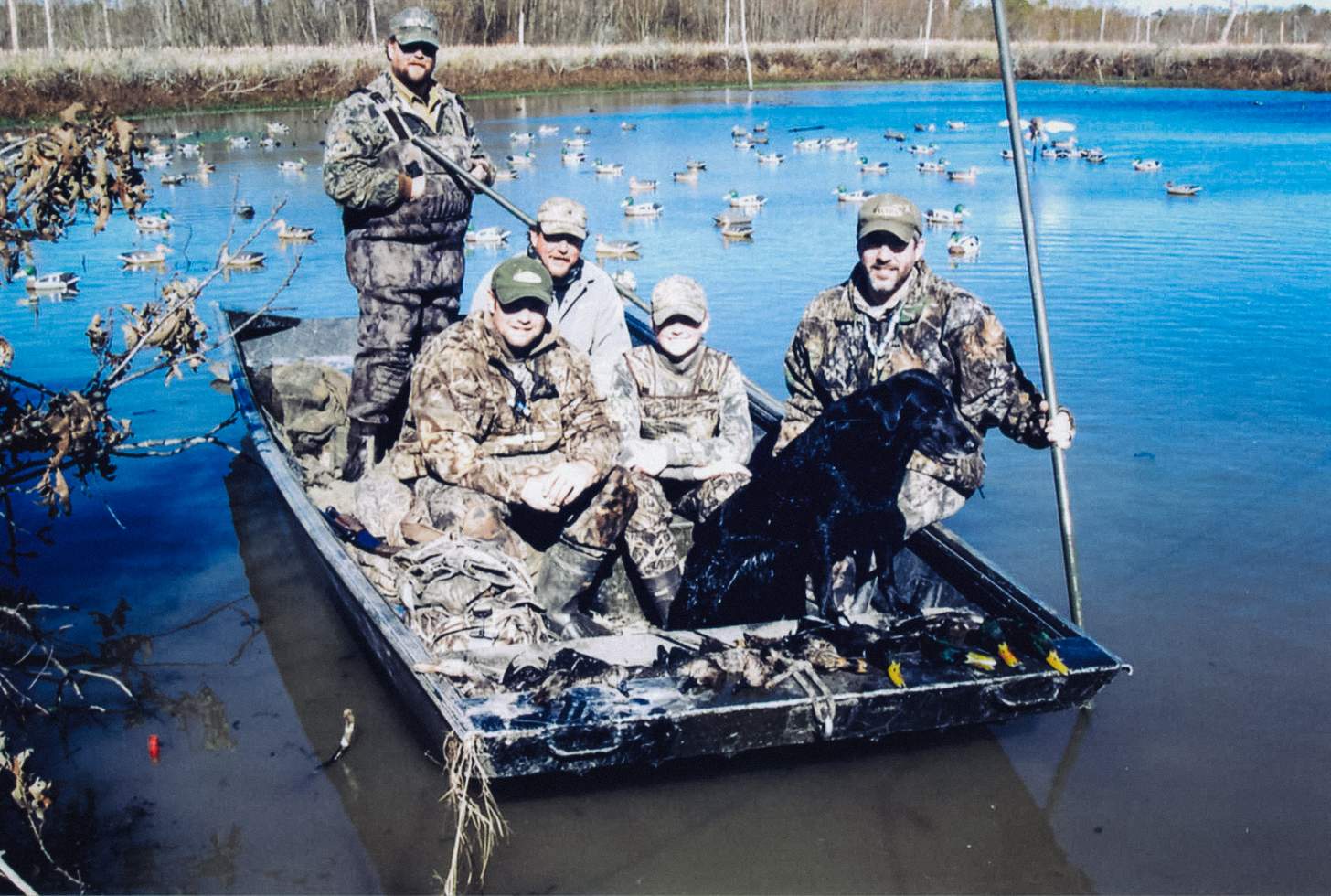
Chad Belding’s list of mentors reads like a who’s who of waterfowl icons. From Duck Dynasty patriarch Phil Robertson to duck calling legend Jim Ronquest, Chad was greatly influenced by the very best in the waterfowl and hunting industries.
Others whom Chad counts as being integral to his development as a duck hunter and businessman include Tim Grounds, whose name is synonymous with waterfowl calling and hunting, Terry Denmon, founder of Mojo Outdoors, and champion duck caller Fred Zink, a pioneer in the modern waterfowl industry.
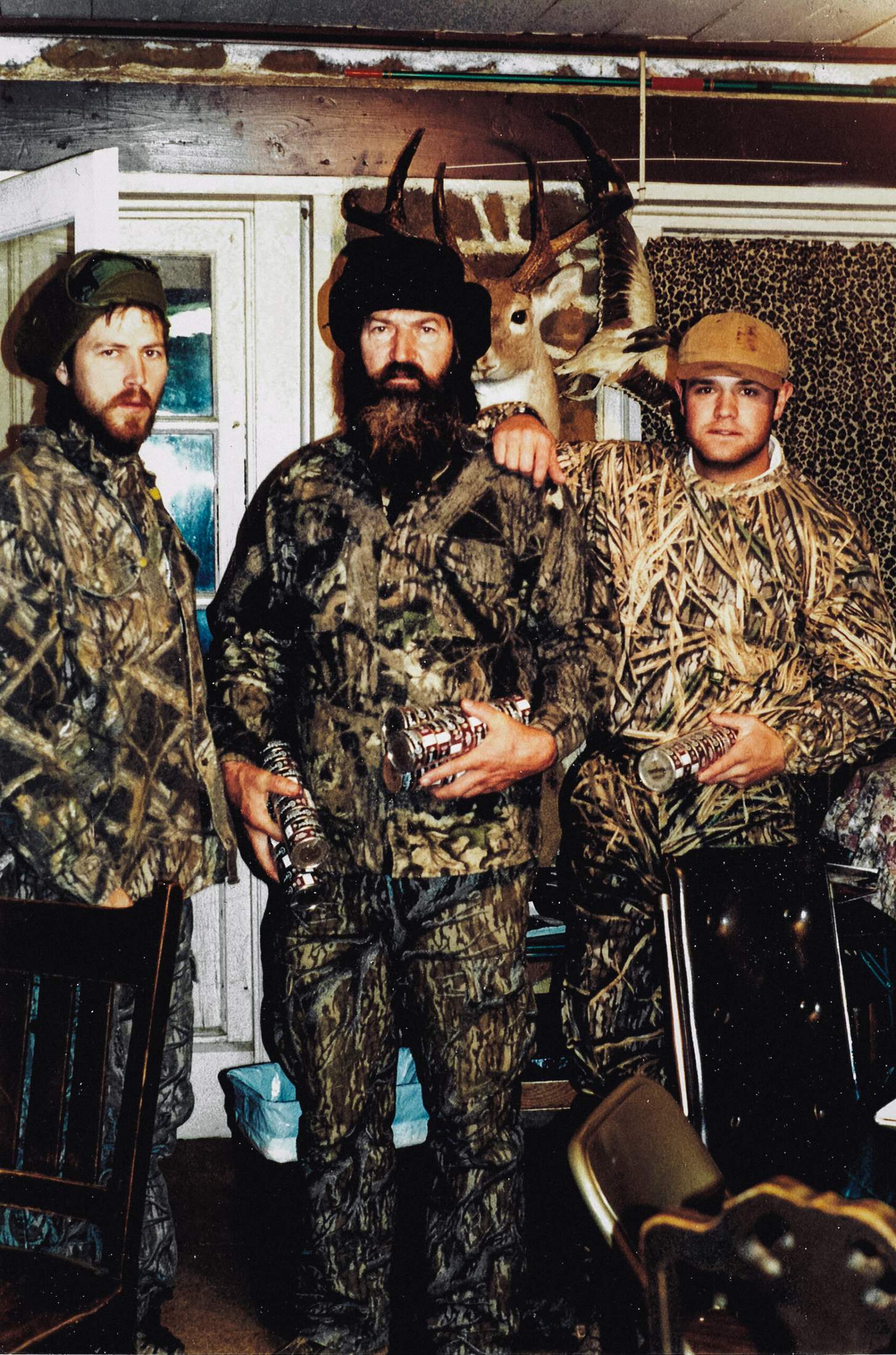
For More Fowl Life Content
thefowllife.com: One-stop shop for content, podcast, merch and more.
theproviderlife.com: Belding’s new field-to-table streaming show, his Fowl Life’s culinary brand, with everything from dry rubs to tutorials.
banded.com: Where to find the motherlode of waterfowl-centric clothes and gear.
thislifeaintforeverybody.com: Forget JRE, Chad’s podcast with special guests is a must-listen!
